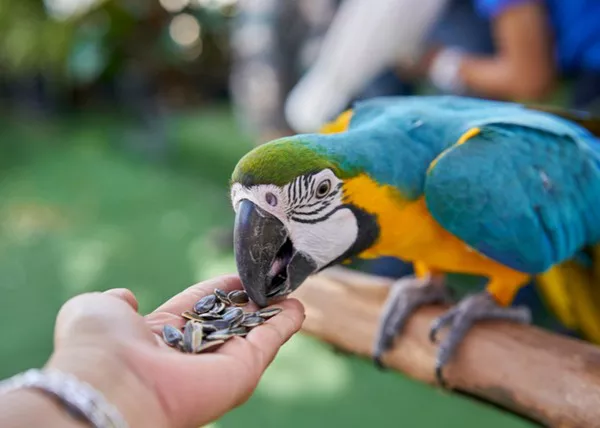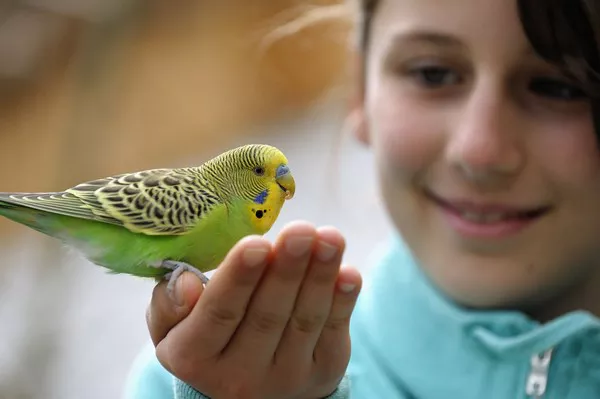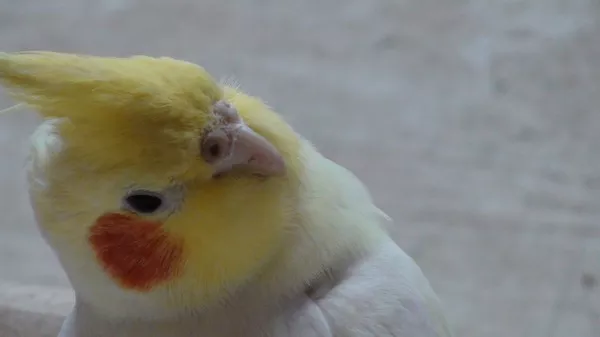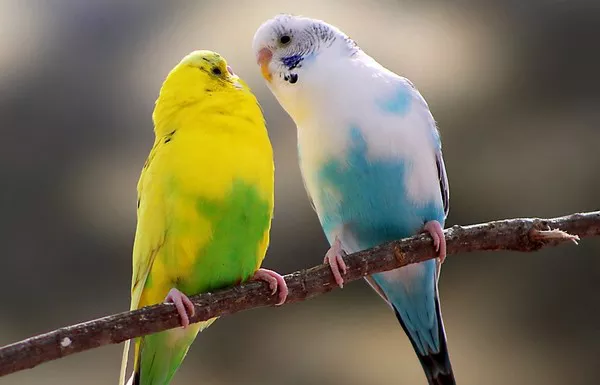Sun conures, with their vibrant colors and playful personalities, are often considered one of the most charming bird species to keep as pets. But beyond their eye-catching appearance lies a question that many prospective pet owners ponder: Are sun conures friendly? This article explores the social behaviors, characteristics, and unique needs of sun conures, ultimately answering the question of their friendliness while providing insights into how to nurture their sociable nature.
Understanding Sun Conures
Sun conures (Aratinga solstitialis) are small to medium-sized parrots that originate from the northeastern parts of South America, primarily in countries like Brazil, Guyana, and Venezuela. Their bright yellow and orange plumage, often accented with green and blue feathers, make them visually striking companions. These birds usually measure about 12 to 14 inches in length and weigh around 4 to 6 ounces.
Sun conures are known for their playful and energetic behavior. They are highly social creatures, naturally living in flocks in the wild. This social structure is a key aspect of their personality, influencing how they interact with humans and other pets.
A Brief History
The sun conure was first described scientifically in 1776 by the Swedish naturalist, Johan Reinhold Forster. Initially, these birds were captured for the pet trade due to their beauty and engaging personalities. However, they quickly gained popularity as companion animals due to their intelligence, vocal abilities, and interactive nature.
The Social Nature of Sun Conures
Social Animals
One of the defining traits of sun conures is their inherently social nature. In the wild, they thrive in flocks, where they communicate, play, and interact with each other. This social behavior is deeply ingrained in their DNA, and it significantly influences their friendliness towards humans and other pets.
Sun conures are known for their loud calls and chirps, which they use to communicate with their flock. In a home environment, they often seek the same interaction with their human companions, using vocalizations to engage and express their feelings.
Bonding with Humans
When kept as pets, sun conures can form strong bonds with their owners. However, the degree of friendliness depends largely on the individual bird’s personality, early socialization, and the owner’s ability to interact positively with the bird.
A well-socialized sun conure will often show affection by cuddling, preening, and wanting to be close to their owner. They can become quite attached and may even exhibit signs of jealousy or protectiveness over their human companions. This bond can lead to playful behavior, such as chasing after toys or engaging in games like hide-and-seek.
Factors Influencing Friendliness
Early Socialization: Birds that are handled frequently and positively during their early development stages are more likely to be friendly. Ideally, a sun conure should be exposed to various people, sounds, and environments as a chick to encourage sociability.
Age and Maturity: Younger sun conures are often more curious and playful, making them more likely to be friendly. However, as they mature, their personalities may change. Some birds may become more independent, while others may become more affectionate.
Individual Personality: Just like humans, every sun conure has its own unique personality. Some may be more laid-back and friendly, while others can be more reserved or even a bit nippy.
Owner Interaction: The way an owner interacts with their sun conure can greatly impact the bird’s friendliness. Positive reinforcement through treats, gentle handling, and engaging play can help foster a friendly relationship.
Recognizing a Friendly Sun Conure
Body Language
Understanding a sun conure’s body language is crucial for recognizing its mood and friendliness. Here are some signs to look for:
Fluffed Feathers: When a sun conure is relaxed and comfortable, it may fluff its feathers. This behavior indicates that the bird is at ease and open to interaction.
Head Bobbing: Sun conures often bob their heads as a form of communication and excitement. This behavior can signal that they are in a friendly mood and eager to engage.
Crouching and Wing Flapping: If a sun conure crouches down with its wings slightly spread, it may be inviting you to scratch its head or engage in play.
Chirping and Whistling: Vocalizations are an essential part of a sun conure’s communication. If your bird is chirping or whistling happily, it is likely feeling friendly and social.
See Also: What Is the Sun Conure Known For?
Unfriendly Behaviors
While sun conures can be friendly, they can also exhibit unfriendly behaviors. Understanding these signs is essential for pet owners to ensure a positive environment for their birds.
Biting: A sun conure may bite if it feels threatened, scared, or annoyed. This behavior is often a reaction to being cornered or mishandled.
Hissing or Growling: Vocalizations such as hissing or growling can indicate discomfort or aggression. It is essential to respect the bird’s boundaries if you notice these sounds.
Feather Ruffling: If a sun conure ruffles its feathers and appears agitated, it may be feeling stressed or uncomfortable.
Building a Friendly Relationship with Your Sun Conure
Socialization Techniques
Daily Interaction: Spend time each day talking to and interacting with your sun conure. Offer toys, engage in play, and provide opportunities for socialization to help your bird feel comfortable around you.
Positive Reinforcement: Use treats and praise to encourage friendly behavior. Reward your sun conure for stepping up onto your hand or interacting with you. This positive reinforcement builds trust and encourages sociability.
Gentle Handling: Handle your sun conure gently and patiently. Allow the bird to come to you at its own pace. Avoid sudden movements or loud noises that could startle it.
Group Dynamics: If you have multiple pets, consider how their interactions can influence your sun conure’s behavior. Proper introductions and supervised interactions can help create a harmonious environment.
Environment and Enrichment
Creating a stimulating environment is crucial for the mental and emotional well-being of your sun conure. Here are some tips for enhancing their living space:
Toys and Activities: Provide a variety of toys that encourage exploration, chewing, and problem-solving. Rotate toys regularly to keep your sun conure engaged and entertained.
Socialization with Other Birds: If possible, introduce your sun conure to other birds in a controlled environment. This interaction can help enhance their social skills and friendliness.
Outdoor Time: Allowing your sun conure to spend time outdoors (in a safe, secure aviary or with proper supervision) can expose them to new sights and sounds, enriching their environment.
Routine and Consistency: Establishing a daily routine helps your sun conure feel secure and builds trust. Consistency in feeding, playtime, and interaction is key.
Understanding Challenges
While sun conures are often friendly, they can also pose challenges for owners. Recognizing potential issues can help create a more positive experience.
Noise Levels
Sun conures are known for their loud vocalizations, which can be a challenge for some pet owners. Their calls can be quite loud and may be disruptive, especially in quiet environments. It’s essential to consider your living situation and whether you can accommodate the noise.
Jealousy and Territorial Behavior
Sun conures may exhibit jealousy towards other pets or family members, leading to territorial behavior. This behavior can manifest as biting or aggressive vocalizations. To mitigate this, provide equal attention to all pets and ensure your sun conure feels secure in its space.
Health Concerns
As with any pet, health issues can impact a sun conure’s behavior. Regular veterinary check-ups and a balanced diet are essential for maintaining their health. Common health concerns in sun conures include feather plucking, respiratory issues, and obesity.
Conclusion
In summary, sun conures can be incredibly friendly and affectionate pets when properly socialized and cared for. Their vibrant personalities, intelligence, and playful nature make them delightful companions for those willing to invest time and effort into building a relationship. By understanding their social needs, recognizing their behaviors, and creating a nurturing environment, pet owners can enjoy a fulfilling bond with their sun conures.
Related Topics:


























